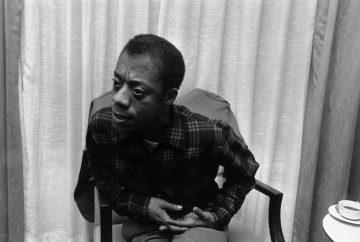 Laura Tanenbaum in Jacobin:
Laura Tanenbaum in Jacobin:
Living in Fire, Bill Mullen’s new biography of James Baldwin is many things: a short, accessible introduction to Baldwin’s life and work drawing on his letters and unpublished writings; an argument for his place among left artists and writers; and an overview of his less well-known writings on queer identity and anti-imperialism, including their relation to Palestine. It’s also a great advertisement for the New York City public schools.
Baldwin grew up as the oldest of nine children. His father was a storefront preacher who worked at a soda bottling plant, making $27.50 a week. His childhood took place largely during the Great Depression, when black unemployment reached 50 percent, but Baldwin’s teacher, Orilla Miller, nonetheless called the poverty of Baldwin’s house among the worst she had seen. Taking a liking to Baldwin, Miller brought him along to the movies, an experience he would recount many years later in The Devil Finds Work, his book-length essay about American films; her husband took Baldwin to the May Day parade, where he got his first taste of what he later described as “the universal and inevitable ferment which explodes into what is called a revolution.”
More here.
